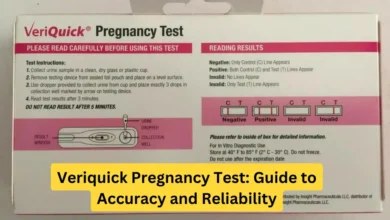High Blood Pressure Foods to Avoid

High blood pressure, or hypertension, is a significant health concern affecting millions worldwide. Managing hypertension involves lifestyle changes, and a crucial aspect of this is diet. Knowing which foods to avoid can help maintain healthy blood pressure levels. Here, we delve into the specific foods that should be minimized or eliminated from your diet to manage high blood pressure effectively.
Processed Foods
Processed foods are notorious for their high sodium content. Sodium is a leading contributor to high blood pressure as it causes the body to retain water, increasing the pressure on the blood vessel walls.
- Canned Soups and Vegetables: These often contain added sodium for preservation and flavor.
- Frozen Dinners: These are convenient but usually packed with sodium and preservatives.
- Snack Foods: Chips, pretzels, and crackers often have excessive salt.
Sugary Foods and Beverages
Sugar consumption can indirectly contribute to high blood pressure by promoting weight gain and obesity, both of which are risk factors for hypertension.
- Sugary Drinks: Sodas, sweetened teas, and energy drinks are high in sugar.
- Baked Goods: Cakes, cookies, and pastries often have added sugars.
- Candy: All types of candy contain high amounts of sugar.
Red and Processed Meats
Red and processed meats are often high in saturated fats and sodium, which can increase blood pressure and the risk of heart disease.
- Sausages and Hot Dogs: These are high in sodium and unhealthy fats.
- Bacon and Ham: Both contain high levels of salt and preservatives.
- Beef and Pork: Especially cuts that are high in fat.
Alcohol
While moderate alcohol consumption might have some health benefits, excessive drinking is linked to an increase in blood pressure. It’s important to limit alcohol intake to maintain healthy blood pressure levels.
- Beer: High in calories and can contribute to weight gain.
- Wine: Should be consumed in moderation.
- Spirits: Limit to avoid spikes in blood pressure.
High-Fat Dairy Products
Dairy products high in fat can contribute to higher cholesterol levels and blood pressure. Opt for low-fat or fat-free alternatives when possible.
- Whole Milk: High in saturated fat.
- Cheese: Often high in sodium and fat.
- Butter and Cream: Loaded with unhealthy fats.
Pickled and Fermented Foods
Pickled and fermented foods are preserved in salt, making them high in sodium. While they can be part of a healthy diet in moderation, excessive consumption can raise blood pressure.
- Pickles: Often very high in salt.
- Sauerkraut: Contains high levels of sodium.
- Kimchi: Healthy in small amounts but can be high in salt.
Caffeinated Beverages
Caffeine can cause a short-term spike in blood pressure. It’s advisable to monitor caffeine intake, especially if you are sensitive to its effects.
- Coffee: Limit to a few cups a day.
- Energy Drinks: Often high in caffeine and sugar.
- Certain Teas: Some teas have significant caffeine content.
Condiments and Sauces
Many condiments and sauces are loaded with hidden sodium and sugars, which can contribute to high blood pressure.
- Soy Sauce: Extremely high in sodium.
- Ketchup: Contains both sugar and salt.
- Salad Dressings: Often have added sugars and sodium.
Artificial Sweeteners
Some studies suggest that artificial sweeteners may contribute to an increase in blood pressure. It’s best to use natural sweeteners in moderation.
- Aspartame: Found in many diet sodas and sugar-free products.
- Saccharin: Used in various low-calorie foods.
- Sucralose: Found in many “sugar-free” products.
Foods High in Trans Fats
Trans fats are known to increase the risk of heart disease and hypertension. These unhealthy fats are often found in processed and fried foods.
- Fried Foods: French fries, fried chicken, and other deep-fried items.
- Margarine: Some margarines contain trans fats.
- Processed Snacks: Cookies, crackers, and microwave popcorn.
Conclusion
Managing high blood pressure involves making informed dietary choices. By avoiding the foods listed above, you can take a significant step toward maintaining healthy blood pressure levels and improving overall cardiovascular health. Always consult with a healthcare provider for personalized advice and recommendations.




